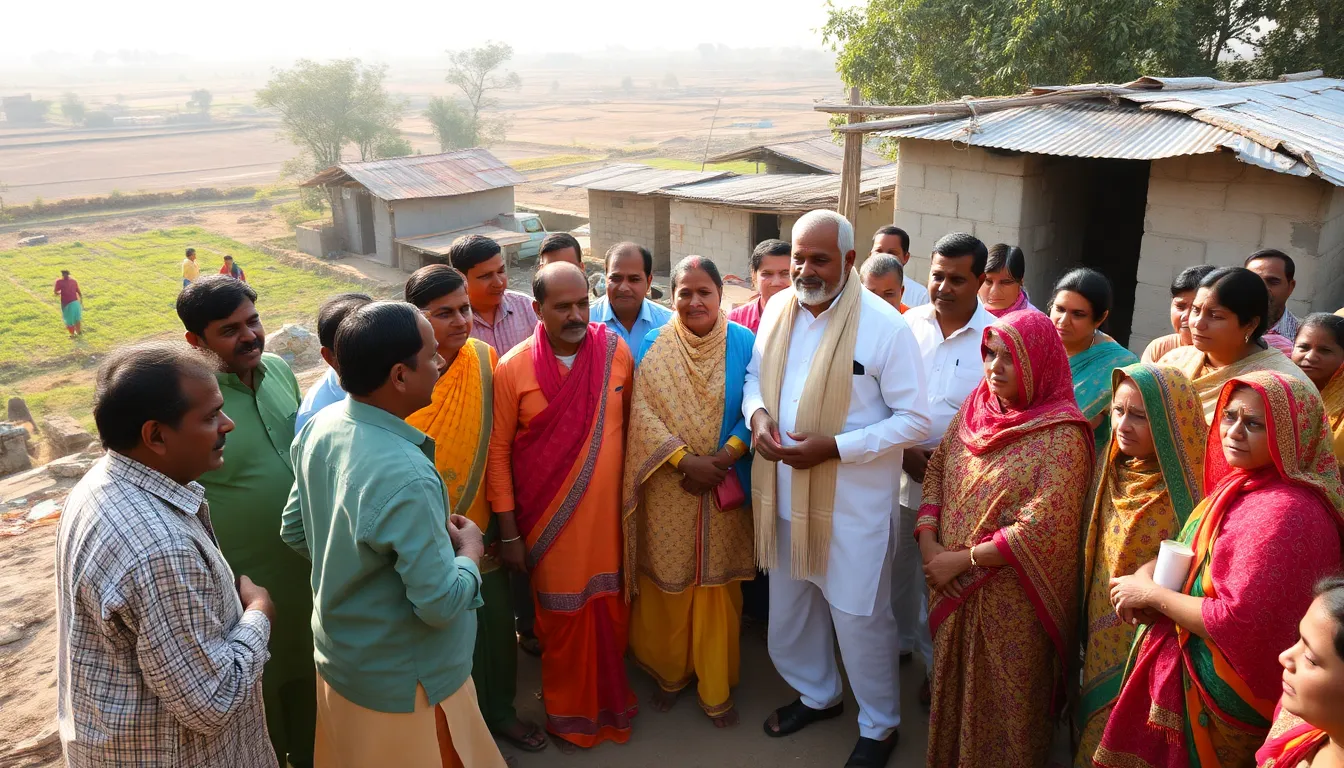In the Bhabhar taluka of Gujarat, elections are underway for 23 gram panchayats out of a total of 47. On the fourth day of the nomination process, a total of 22 candidates filed their nomination forms for the position of sarpanch (village head). Many young people and leaders are eager to participate in these elections. The highest number of nomination forms were submitted from Beda village and Chichodara panchayat, with four each.
The nomination process has seen a steady interest, with candidates from various villages coming forward. In addition to the sarpanch nominations, there were also 22 candidates for ward member positions. The villages of Mesapura, Khari Paldi, Abala, Tetarwa, Dev Kapadi, Tanwad, Chembuwa, Khadosan, Karela, and Asana also had candidates filing their nomination forms.
The people of Chembuwa village have united to ensure the smooth running of their panchayat. They have unanimously declared Patel Jethabhai Ramsingbhai as their sarpanch without competition. Additionally, Darghabhai Mavjibhai Patel has been declared as the deputy sarpanch. In the old gram panchayat of Chembuwa, the villagers also elected Jebaben Rajubhai Joshi as the sarpanch without contest.
The gram panchayat serves as a local governing body at the village level in India, playing a crucial role in the Panchayati Raj system. The panchayat consists of a sarpanch, a deputy sarpanch, and other members, all elected for a term of five years. Each panchayat typically has between 8 to 16 members. The panchayat is responsible for addressing local issues, implementing development projects, and managing various schemes at the village level.
Meetings of the gram sabha (village assembly) are held regularly to discuss pressing issues and ensure community engagement. The sarpanch leads these meetings, which are mandatory twice a year. All adult villagers have the right to attend, vote, and propose matters during these assemblies. This democratic process encourages local governance, giving villagers a voice in decision-making.
As the election process continues, the enthusiasm among candidates and villagers reflects a strong commitment to community development and governance. The successful election of leaders without opposition in Chembuwa indicates a sense of unity and trust within the community. Such elections are vital for upholding democracy at the grassroots level, ensuring that local needs and concerns are addressed effectively.
The role of the gram panchayat is essential for rural development in India. It acts as a bridge between the government and the villagers, facilitating access to various government services and benefits. The elected leaders are expected to work closely with government officials to implement schemes that improve the quality of life for their constituents.
In conclusion, the ongoing elections in Bhabhar taluka not only highlight the democratic spirit of the region but also show the importance of local governance in fostering community development. As new leaders take their positions, the focus will be on enhancing the welfare of the village and ensuring that every voice is heard in the decision-making process.


Leave a Reply